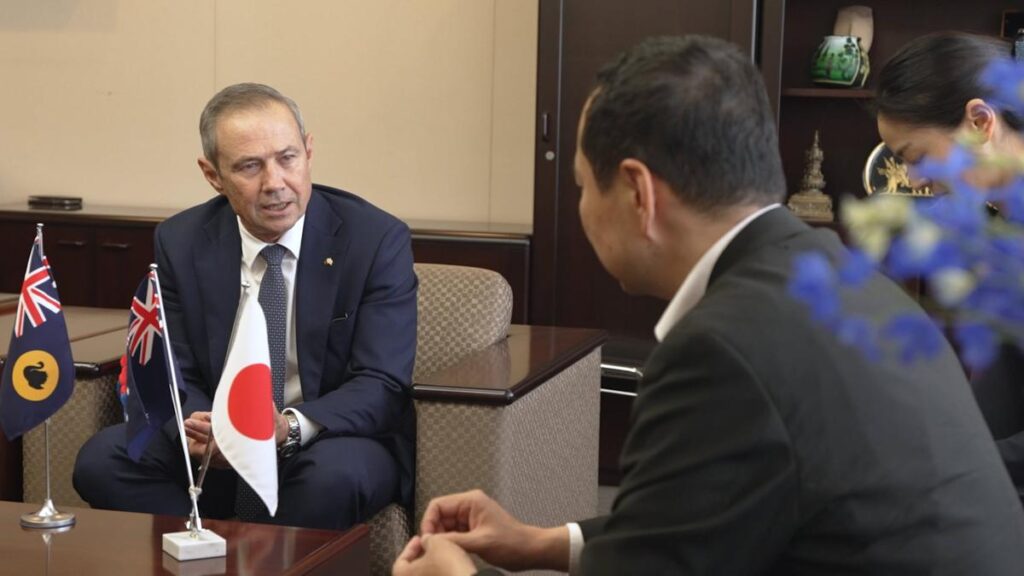
WA Premier Roger Cook's recent visit to Japan for high-level meetings with government and industry stakeholders.
Premier Roger Cook has moved to reassure Japan that Western Australia’s gas exports will remain a dependable energy source, even as the global landscape faces increasing challenges. This assurance comes amid mounting pressure from environmental activists and uncertainties linked to the policies of former US President Donald Trump.
During a recent trade mission to Japan, Premier Cook emphasized the stability and reliability of Western Australia’s gas sector. He acknowledged the growing environmental concerns but underscored the state’s commitment to maintaining strong energy ties with Japan, a key trading partner.
Global Uncertainty and Environmental Pressures
The backdrop of Cook’s reassurance is a world grappling with environmental activism and the lingering effects of Trump-era policies. Environmental groups have been vocal in their criticism of fossil fuel reliance, urging a shift towards renewable energy sources. Simultaneously, geopolitical tensions have introduced uncertainties in global trade and energy markets.
According to industry experts, Western Australia’s gas exports are crucial for Japan, which relies heavily on imported energy. Japan’s energy strategy has been under scrutiny as it balances its need for reliable energy with its commitments to reducing carbon emissions.
Japan’s Energy Needs
Japan, the world’s third-largest economy, has limited natural resources and depends significantly on energy imports. The country’s energy policy has evolved over the years, especially following the Fukushima disaster in 2011, which led to a reevaluation of nuclear power usage.
In recent years, Japan has increased its focus on energy security and diversification. Western Australia’s gas supplies have played a pivotal role in this strategy, providing a stable source of energy that supports both industrial and domestic needs.
Expert Opinions
Energy analysts suggest that while environmental pressures are real, the transition to renewables will take time. “Natural gas is considered a bridge fuel,” said Dr. Emily Tanaka, an energy policy expert. “It provides a lower-carbon alternative to coal and oil, making it an essential part of the energy mix during the transition period.”
“Natural gas is considered a bridge fuel. It provides a lower-carbon alternative to coal and oil, making it an essential part of the energy mix during the transition period.” – Dr. Emily Tanaka
Historical Context and Future Prospects
Historically, Western Australia has been a reliable energy partner for Japan. The trade relationship has been mutually beneficial, with Japan investing in infrastructure and technology to support gas extraction and processing in WA.
Looking forward, the partnership is expected to evolve as both regions adapt to new energy realities. Western Australia is exploring ways to reduce the carbon footprint of its gas production, while Japan is investing in technologies like hydrogen and carbon capture to meet its climate goals.
Premier Cook’s assurances come at a critical time, as both regions navigate the complex interplay of economic needs and environmental responsibilities. The commitment to maintaining a stable energy supply underscores the importance of international collaboration in addressing global challenges.
As the world continues to grapple with climate change and geopolitical shifts, Western Australia’s role as a key energy supplier to Japan remains crucial. The ongoing dialogue between the two regions highlights the need for balanced approaches that consider both economic and environmental imperatives.






